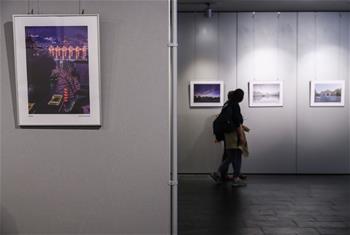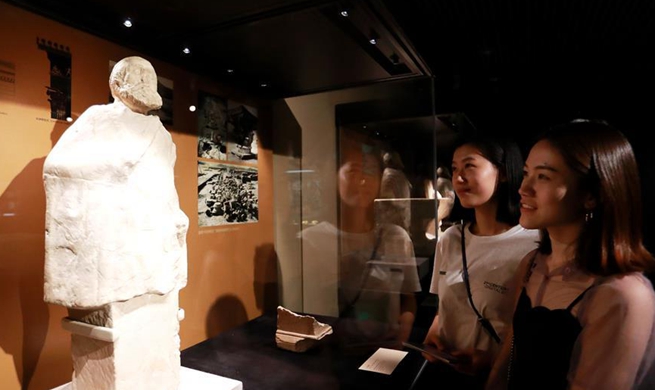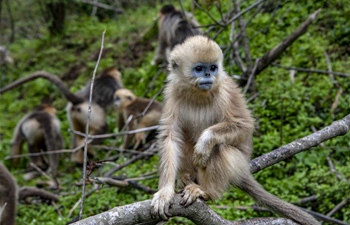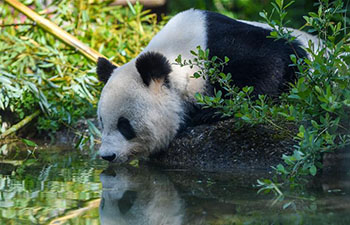LANZHOU, May 18 (Xinhua) -- "Mars ain't the kind of place to raise your kids," as an Elton John hit goes.
However, a Mars simulation base in the middle of China's Gobi desert might be the perfect place to introduce young, budding astronauts to what life would be like on the red planet.
Surrounded by barren hills and red soil in northwest China's Gansu Province, "Mars Base One" allows visitors to explore a variety of space facilities and the rocky, martian-like landscape.
The white-colored base covers five sq km and features nine interconnected modules, including a control room, living quarters and a greenhouse where wheat and vegetables grow.
The base made international headlines when it started trial operation and welcomed more than 100 local students on a five-hour tour on April 17. Its distinctive landscape was described by Reuters as a close analog of Tatooine, the home planet of the "Star Wars" hero Luke Skywalker.
Since then, Mars Base One has received over 500 visitors, mainly teenagers, from across China who yearn to take a peek at the futuristic base before its official opening later this year.
"This place is so cool; more than what I've imagined. I hope I can land on Mars someday," middle school student Cai Yajuan said after visiting the base.
"Having experienced what life is like on Mars, I'm now more curious about outer space," said another student Li Yaqin, who called herself a big fan of sci-fi hits such as "The Wandering Earth" and "The Martian."
Li Tanqiu, deputy chief designer of China's astronaut system department and a consultant of the base, said the base combines science popularization with tourism, which will enable more people to experience the pleasure of space exploration.
Liu Chuan, operations manager of the base, said he has been woken up by phone calls about the base almost every morning after its unveiling. But he is more than glad to see that Chinese people have taken so much interest in space exploration.
"The base provides teenagers with an opportunity to learn about Mars. We hope to inspire more and more young people to participate in space exploration," Liu said.
He added that staff with the base are creating science courses and designing tour routes to better serve visitors in the future.
"I don't know who will be the first person to land on Mars, but it could be someone who has visited the base," he said.

















